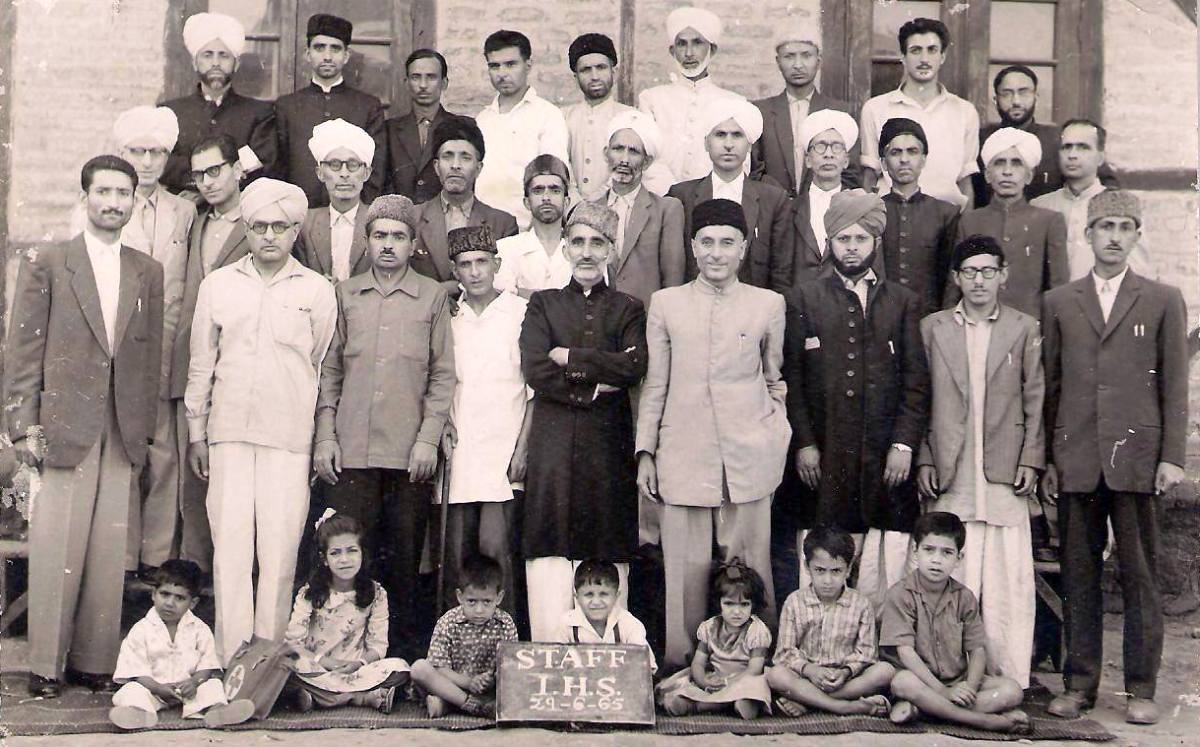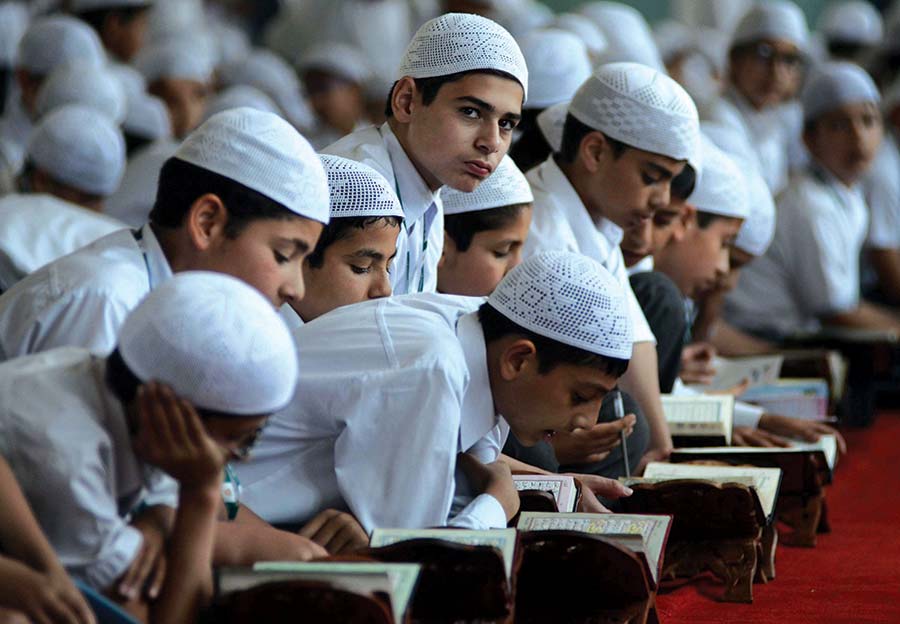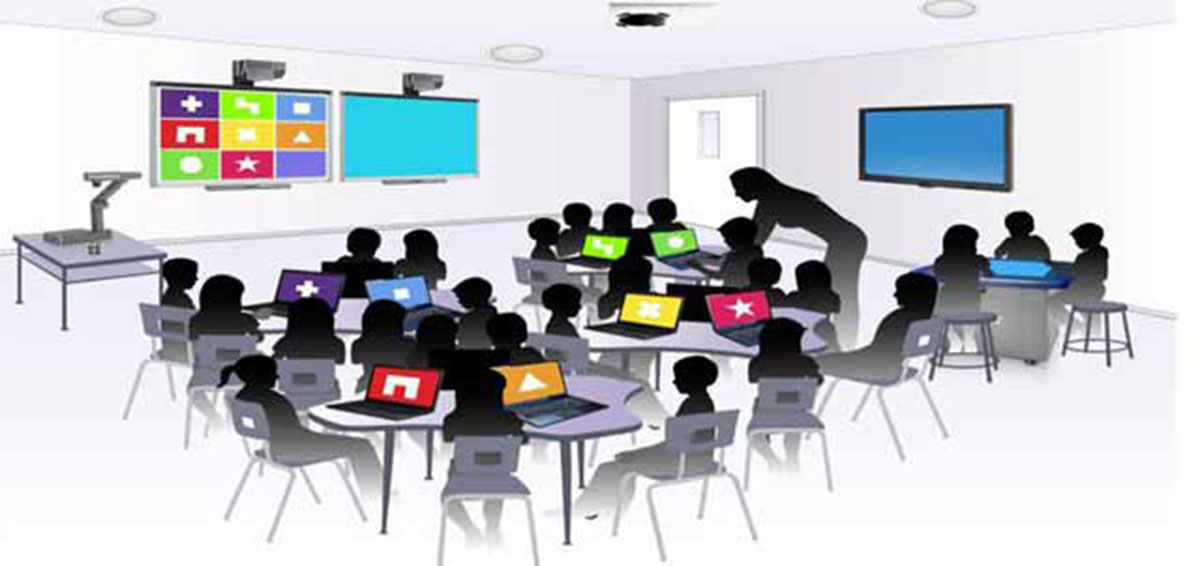by Naveed Para
A person without knowledge is like someone walking along a track in complete darkness.

The term education refers to the process of facilitating individuals acquire new knowledge and skills to become a productive part of society. In other words, it is a process in which individuals are supported to learn new skills, values, habits, and beliefs.
This process of facilitating learning and acquisition of new knowledge or simply education takes place in both formal and informal ways. However, an ideal formal education setting is expected to enhance the intellectual, physical, and emotional capacity of a person – thereby ensuring the holistic development of a person.
The Concept In Islam
In Islam, education is a process of facilitating individuals to live their life according to Islamic teachings. From an Islamic perspective, intellectual, physical, and emotional enhancement are pointless without cultivating a strong belief in Islamic fundamentals. In other words, Islam emphasizes setting up such a formal system of education, which creates an enabling environment for people to create a balance between Deen and Dunya.
Centuries-old monarchy, colonialism and the oppressive rule of their own people have brought about moral and spiritual degeneration of Muslims throughout the world. To retrieve them from this degeneration, it is about time that the Muslim Ummah restructures its educational priorities along Islamic lines, fulfilling the existing needs as well.

By virtue of such an educational programme, the future generations will become the torch-bearers of Islamic values and play an effective role in the present world. The challenges of modern times call for rebuilding the structure of our educational programme on such a foundation as to fulfil our spiritual as well as worldly obligations. Today we need an education system, which can produce philosophers, scientists, economists, jurists, statesmen – experts in all fields of knowledge who would reconstruct the social order.
Importance of Education
The importance of education in Islam is evident from the fact that the first revelation to the Prophet Muhammad (PBUH) began with the word “Read”.
The first revelation is quoted as follows:
“Read. Read in the name of your Lord who created; [He] created the human being from a blood clot. Read in the name of thy Lord who taught by the pen: [He] taught the human being what he did not know” (Quran, 96: 1-5).
The Prophet (PBUH) made practical examples in his lifetime for Muslims of all times to get guidance. For example, in the battle of Badar, the Muslims had arrested 70 non-Muslims after inflicting a crushing defeat on the invading army of non-Muslims of Mecca.
Apart from decent treatment, the prophet set a criterion with regard to the release of the prisoners of the war that manifested the importance of education in Islam. The prophet (PBUH) provided, “Those who were literate among the prisoners could go free if they taught basic literacy skills to 10 Muslim children.”
Acquire Knowledge
The first and most crucial obligation on us is to acquire knowledge and secondly to practice and preach this knowledge. No man becomes truly a Muslim without knowing the meaning of Islam, because he becomes a Muslim not through birth but through knowledge. Unless we come to know the basic and necessary teachings of the Prophet Muhammad (S) how can we believe in him, have faith in him, act according to what he taught? It is impossible for us to be Muslim, and at the same time live in a state of ignorance.
It is essential to understand that the greatest gift of Allah, for which we are so overwhelmed with gratitude, depends primarily on knowledge. Without knowledge, one can’t truly receive Allah’s gift of Islam. If our knowledge is little, then we will constantly run the risk of losing that magnificent gift, which we have received unless we remain vigilant in our fight against ignorance.
A person without knowledge is like someone walking along a track in complete darkness. Most likely his steps will wander aside and he easily can be deceived by Shaytaan. This shows that our greatest danger lies in our ignorance of Islamic teachings and in our unawareness of what the Qur’an teaches and what guidance has been given by the Prophet (S).

Be Blessed With Knowledge
But if we are blessed with the light of knowledge; we will be able to see plainly the clear path of Islam at every step of our lives. We shall also be able to identify and avoid the dangerous paths of immorality, which may cross it. And, whenever a false guide meets us on the way, a few words with him will quickly establish that he is not a guide who should be followed.
On this knowledge depends whether our children and we are true Muslims and remain true Muslims. It is, therefore, not trivial to be neglected. We do not neglect to do whatever is essential to improve our trades and professions. Because we know that if we do neglect, we will starve to death and so lose the precious gift of life.
Why then should we be negligent in acquiring that knowledge on which depends whether we become Muslims and remain Muslims? Does such negligence not entail the danger of losing an even more precious gift – our Imaan?
Most of our time and labour is spent on things, which sustain our physical existence in this life. Why can we not spend even a tenth part of our time and energy on things, which are necessary to protect our Imaan, which only can sustain us in the present life and in the life to come? It is not necessary to study extensively to become a Muslim. We should at least spend about one hour out of twenty-four hours of the day and night in acquiring the knowledge of this Deen, the way of life, the Islam.
Basic Knowledge
Every one of us, young or old, man or woman, should at least acquire sufficient knowledge to enable ourselves to understand the essence of the teachings of the Qur’an and the purpose for which it was revealed.
No great amount of time is required to acquire this simple knowledge. If we truly value Imaan, it cannot be too difficult to find one hour every day to devote to our Imaan. Knowledge is identified in Islam as worship. The acquiring of knowledge is worship, reading the Qur’an and pondering upon it is worship, travelling to gain knowledge is worship.

Not only should we seek knowledge, but when we learn it, it becomes obligatory for us to practice it. The main purpose of acquiring knowledge is to bring us closer to God. It is not simply for the gratification of the mind or the senses. It is not knowledge for the sake of knowledge or science for the value of sake. Knowledge accordingly must be linked with values and goals in life.
(Author is a lawyer at J&K High Court and LL.D scholar at School of Law, Kashmir University. The opinions expressed in this write-up are those of the author’s and do not purport to reflect the views of Kashmir Life.)















